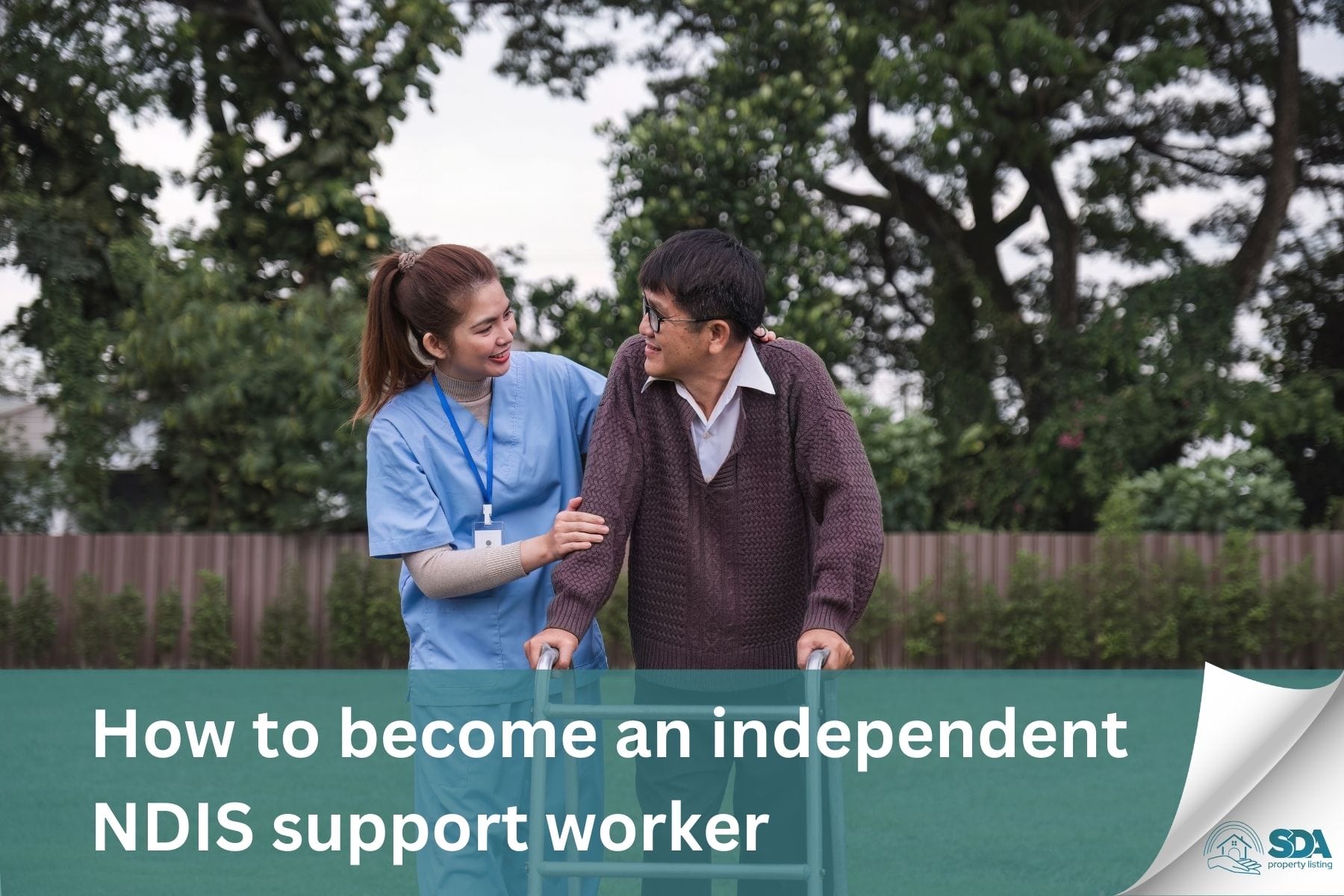
How to Become an Independent NDIS Support Worker
An independent NDIS support worker is a professional who provides various types of assistance to individuals with disabilities, funded through the National Disability Insurance Scheme (NDIS) in Australia. These support workers operate independently, meaning they are self-employed or run their own business rather than being employed by a larger organization. If you want to work as an independent NDIS support worker, this blog will give you step-by-step advice.
Understand the Role
Before you start, it’s important to know what an NDIS support worker is expected to do. Support workers help individuals with challenges with a variety of tasks, including personal grooming, household chores, social interaction, and community involvement. They are vital to raising the independence and quality of life of their clients.
Assess Your Skills and Qualifications
Your eligibility for an NDIS support worker role will depend on your skills, training, and experience. Although formal degrees are not always necessary, having relevant experience working in the community services, healthcare, or disability support sectors may be beneficial. Additionally, the ability to communicate effectively, be determined, stable, and empathetic is essential for success in this role.
Obtain Necessary Training and Certifications
To work as an independent NDIS support worker, you might need to obtain certifications or finish specific training, depending on your experience and background. Formal qualifications such as a Certificate III or IV in Disability Support are valuable in addition to other applicable certifications such as a Certificate III in Individual Support, a Bachelor of Education, a Bachelor of Nursing, a Diploma in Counselling, and a Working with Children Check (WWCC). You can also prepare for the role by attending shorter classes and seminars that cover essential topics including manual handling, healthcare administration, first aid, and disability awareness.
Register with the NDIS
To work as an independent NDIS support worker, you must register as a registered provider with the National Disability Insurance Agency (NDIA). The registration process includes completing an application, providing the required paperwork, and passing a screening process to ensure that NDIS policies and guidelines are being followed.
Develop a Business Plan
It’ll be like having your own business when you work as an independent support worker. Include information about your target market, products or services, pricing strategy, advertising campaigns, and expected financials in your company plan. When considering what you need to give your clients excellent services, consider things like your availability, your mode of transportation, your insurance, and any other tools or support you may need.
Network and Build Relationships
Your networking efforts are crucial to gaining recognition as an independent NDIS support worker and attracting customers. Attend industry events, workshops, and conferences; join online forums and social media groups; interact with allied health professionals, local disability organizations, and support groups to market your services and build long-lasting relationships with the community.
Provide Person-Centered Support
Offering person-centered support that is tailored to each person’s requirements, preferences, and goals is essential once you’ve acquired clients. Make sure you’re meeting your clients’ needs and expectations by maintaining open lines of communication, respecting their privacy, treating them with decency, and frequently asking their feedback.
Find Your Client
After fulfilling those requirements, the next step is finding your client. Whether you are new to the game or an experienced support worker, you can use our website to connect with potential clients.
How to List as Independent Support Worker
- Easy Registration. Create a profile by providing your basic information, qualifications, and certifications. Our user-friendly interface ensures quick and straightforward registration.
- Show your Expertise. Detail your skills, experience, and areas of specialization, such as personal grooming, household chores, social interaction, or community involvement. Highlight relevant certifications to attract potential clients.
By using our website to list your services, you can efficiently find potential clients and expand your career as an independent NDIS support worker.
Conclusion
Being an independent NDIS support worker is a rewarding career choice that allows you the independence and flexibility to make a significant difference in the lives of people with disabilities. By learning about the role, assessing your skills, obtaining the necessary training, registering with the NDIS, putting together a business plan, networking effectively, and providing person-centered help, you may begin a successful profession as an independent NDIS support worker.






